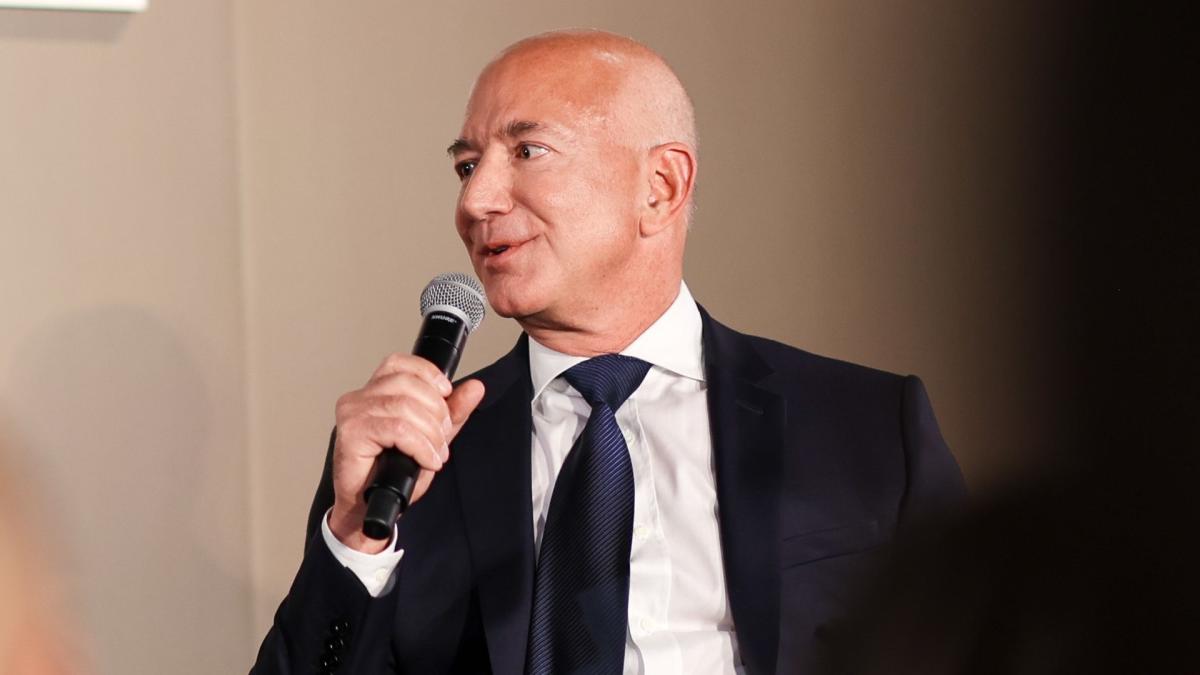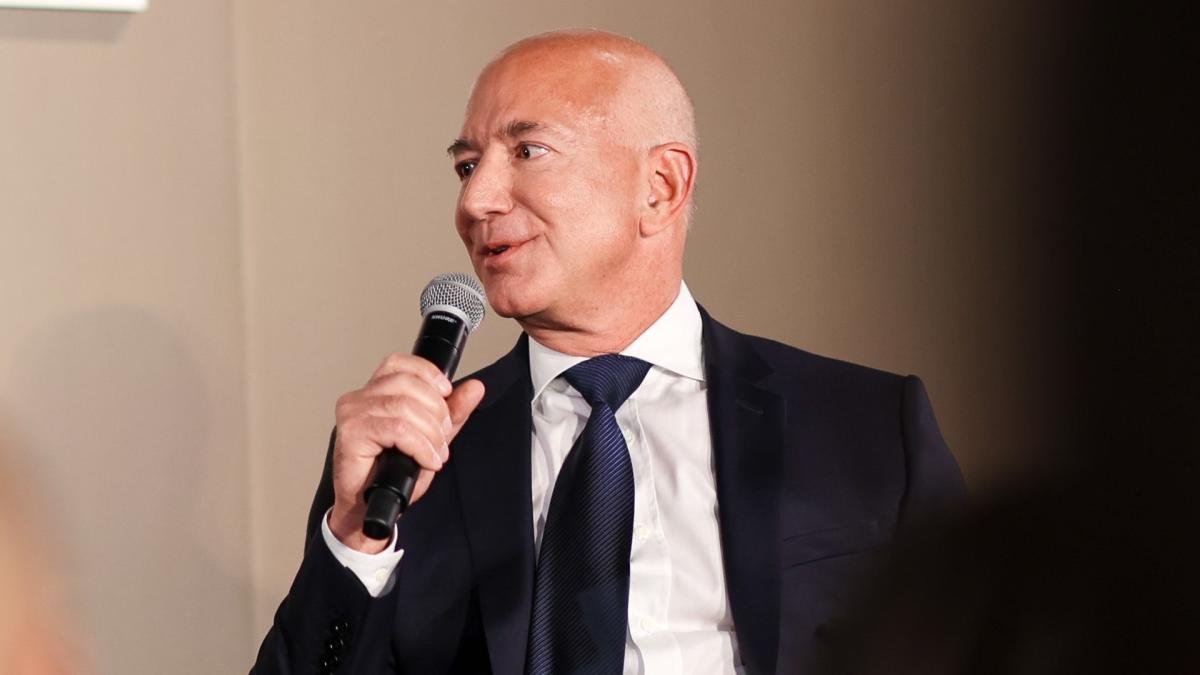## From Garage Startup to Galactic Empire: 7 Business Lessons From Jeff Bezos’ Playbook
He started in a garage, dreamed big, and built an empire. Jeff Bezos, the visionary behind Amazon, isn’t just a tech titan; he’s a masterclass in entrepreneurship. While the gaming world might seem worlds away from online retail, Bezos’ journey offers a treasure trove of timeless wisdom for any gamer-turned-entrepreneur.

The Surprising Habit of Tech Giants: How Alone Time Fosters Innovation and Creativity

One of the most striking facts about the technorati, including Jeff Bezos, is that they spend periods of time eschewing tech to foster innovation and creativity. This habit of solitude is essential for business leaders, allowing them to think critically and make informed decisions.
Sherry Turkle, the author of Alone Together, has noted that we do some of our best thinking when we’re bored, when we’re alone, when we’re singularly focused—not when we’re toggling back and forth between Facebook and Candy Crush. This solitude allows individuals to reflect on their experiences, identify patterns, and develop new ideas.
Cultivating a Culture of Introspection: Why Solitude is Essential for Business Leaders
Bezos’ success can be attributed to his ability to cultivate a culture of introspection, which has been instrumental in Amazon’s growth. By prioritizing alone time, Bezos has been able to think critically about his business and make informed decisions that have propelled Amazon to the top.
This culture of introspection is essential for business leaders, as it allows them to reflect on their experiences and identify areas for improvement. By prioritizing alone time, business leaders can develop a deeper understanding of their business and make informed decisions that drive growth and success.
Applying the Power of Solitude to Everyday Life: Practical Strategies for Entrepreneurs
While it may seem counterintuitive, taking breaks from technology can actually increase productivity and creativity. By incorporating periods of solitude into their daily routine, entrepreneurs can tap into their innovative potential and develop new ideas.
Some practical strategies for applying the power of solitude to everyday life include scheduling alone time, turning off notifications, and engaging in activities that promote introspection, such as meditation or journaling. By prioritizing solitude, entrepreneurs can develop a deeper understanding of their business and make informed decisions that drive growth and success.
Long-Term Thinking and Strategic Planning
Bezos’ Billion-Dollar Philosophy: Why Focusing on Long-Term Growth is Key to Success
Bezos’ success can be attributed to his ability to think long-term, focusing on growth and innovation rather than short-term profits. This philosophy has been instrumental in Amazon’s growth, allowing the company to invest in new technologies and expansion initiatives.
In a 1997 letter to Amazon shareholders, Bezos wrote: “We believe that a fundamental measure of our success will be the shareholder value we create over the long term.” This philosophy has guided Amazon’s decision-making, with Bezos prioritizing investments in new technologies and expansion initiatives over short-term profits.
The Dangers of Short-Term Thinking: How Prioritizing Profits Over Progress Can Harm Your Business
While short-term profits may provide a quick fix, prioritizing profits over progress can harm your business in the long run. By focusing on short-term gains, businesses may neglect investments in new technologies, expansion initiatives, and employee development, ultimately stifling growth and innovation.
Gamestanza recommends that entrepreneurs prioritize long-term thinking, focusing on growth and innovation rather than short-term profits. By doing so, businesses can invest in new technologies, expansion initiatives, and employee development, ultimately driving growth and success.
Developing a Long-Term Vision: Practical Tips for Entrepreneurs to Achieve Sustainable Growth
Developing a long-term vision is essential for achieving sustainable growth. By prioritizing long-term thinking, entrepreneurs can invest in new technologies, expansion initiatives, and employee development, ultimately driving growth and success.
Some practical tips for developing a long-term vision include setting clear goals, prioritizing investments in new technologies, and focusing on employee development. By doing so, entrepreneurs can create a sustainable business model that drives growth and success.
Experimentation and Adaptation
The Art of Experimentation: How Bezos’ Willingness to Try New Strategies Fuels Amazon’s Innovation
Bezos’ willingness to experiment and try new strategies has been instrumental in Amazon’s innovation and growth. By embracing a culture of experimentation, Amazon has been able to develop new products and services, such as Alexa and Prime Video.
This culture of experimentation has allowed Amazon to stay ahead of the curve, adapting to changing market trends and consumer preferences. By embracing a culture of experimentation, entrepreneurs can develop new products and services, ultimately driving growth and innovation.
Embracing Failure as a Stepping Stone to Success: Lessons from Bezos’ Trial-and-Error Approach
While experimentation can lead to innovation, it also comes with the risk of failure. However, Bezos’ trial-and-error approach has shown that failure can be a valuable learning experience, allowing entrepreneurs to refine their approach and develop new strategies.
Gamestanza recommends that entrepreneurs embrace failure as a stepping stone to success, using it as an opportunity to learn and refine their approach. By doing so, entrepreneurs can develop a culture of experimentation, driving growth and innovation.
Cultivating a Culture of Adaptation: Why Entrepreneurs Must Be Open to Change and Evolution
In today’s fast-paced business environment, entrepreneurs must be open to change and evolution. By cultivating a culture of adaptation, entrepreneurs can stay ahead of the curve, adapting to changing market trends and consumer preferences.
Some practical tips for cultivating a culture of adaptation include staying up-to-date with industry trends, being open to feedback, and embracing a culture of experimentation. By doing so, entrepreneurs can develop a sustainable business model that drives growth and success.
Conclusion
So, there you have it – seven timeless business lessons gleaned from the enigmatic Jeff Bezos. From obsessing over the customer to embracing calculated risks and fostering a culture of innovation, Bezos’s journey provides a compelling roadmap for aspiring entrepreneurs. We’ve seen how his unwavering focus on long-term vision, relentless experimentation, and commitment to operational excellence have propelled Amazon to its current status as a global behemoth. These lessons, however, transcend the confines of e-commerce. They hold profound implications for any entrepreneur, regardless of industry or scale. By internalizing these principles, budding business leaders can equip themselves with the tools to navigate the complexities of the modern marketplace. As the world becomes increasingly digital and disruptive, Bezos’s philosophy offers a blueprint for building not just successful businesses, but also enduring legacies. The future belongs to those who dare to dream big, think long-term, and relentlessly pursue their vision. Will you be one of them?
